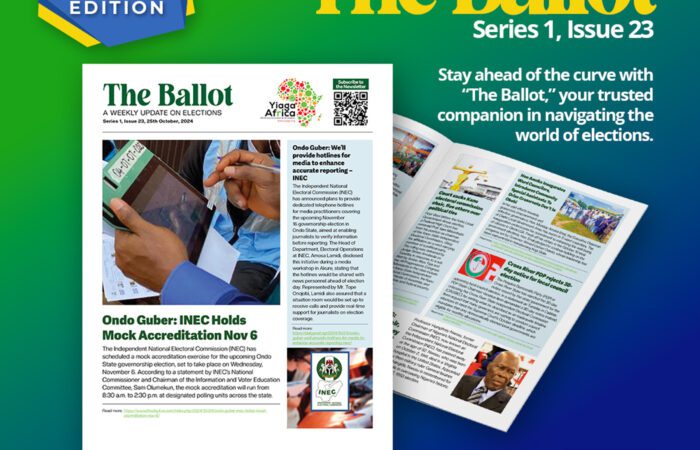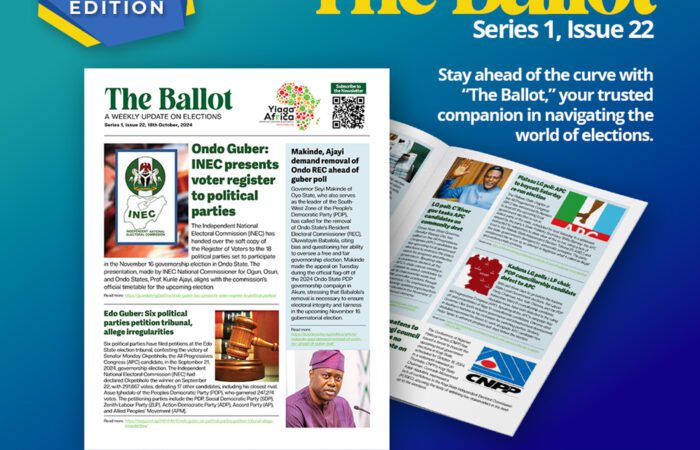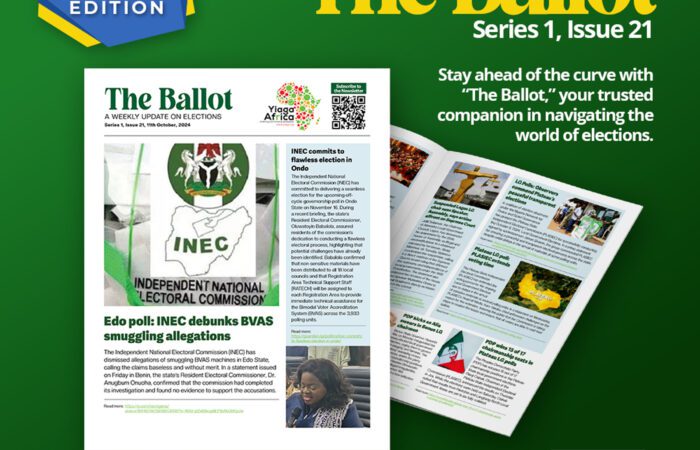The Independent National Electoral Commission (INEC) has urged the National Assembly and other stakeholders to expedite action on the bill to establish the National Electoral Offences Commission/Tribunal ahead of the 2019 general elections.
The Commission also disclosed that it recorded 1,080 cases of electoral offences during the 2015 general elections and subsequent bye-elections.
INEC chairman, Prof. Mahmood Yakubu, stated these in a memorandum he submitted to the Senate joint committee on INEC and the Judiciary on Monday.
He said 124 of the cases were filed and 60 convictions secured in various courts across the country.
Yakubu expressed dismay that reports of the Electoral Reform Committee (the Uwais Report) of 2008 and the Post-election Violence (Lemu Report) 2011 have been left to gather dusts on the shelves.
He said the two reports recommended the establishment of the Electoral Offences Commission/Tribunal to address all forms of electoral violence and impunity that had continued to undermine the stability of the nation’s democracy.
Yakubu lamented the fact that though INEC has the powers to prosecute, it lacks the powers to effect the arrest of electoral offenders.
This, he said has continued to hamper effective prosecution of electoral offenders.
Yakubu said: “While the Uwais Report was transmitted by the executive to the National Assembly in 2010, the White Paper on recommendations of the Lemu Report directed the Office of the Attorney General of the Federation and Minster of Justice to take steps towards the establishment of the Electoral Offences Tribunal.
“Nearly a decade later, there has been no legislative action on these aspects of the recommendations of the Uwais and Lemu reports, making the present effort by the Senate and the concurrent effort by the House of Representatives a welcome development.
“The failure to systematically and consistently enforce sanctions has encouraged impunity and the violence that often characterised electoral contest in Nigeria, thereby subverting the will of the people and undermining the nation’s electoral democracy.
“At present, INEC is saddled with the responsibility of prosecuting electoral offender. Section 150(1) and (2) of the Electoral Act 2010 (as amended) empowered INEC to prosecute electoral offenders through its legal officers or any legal practitioner appointed by it without the powers to arrest and investigate thus depending on the police for this purpose.
“Without the capacity to make arrest and investigate violations, the prosecutorial role is severely hampered. INEC cannot effectively focus on this role given its other variegated responsibilities under the Constitution of the Federal Republic of Nigeria 1999 (as amended) and the Electoral Act 2010 (as amended).”
Source: Todayng






